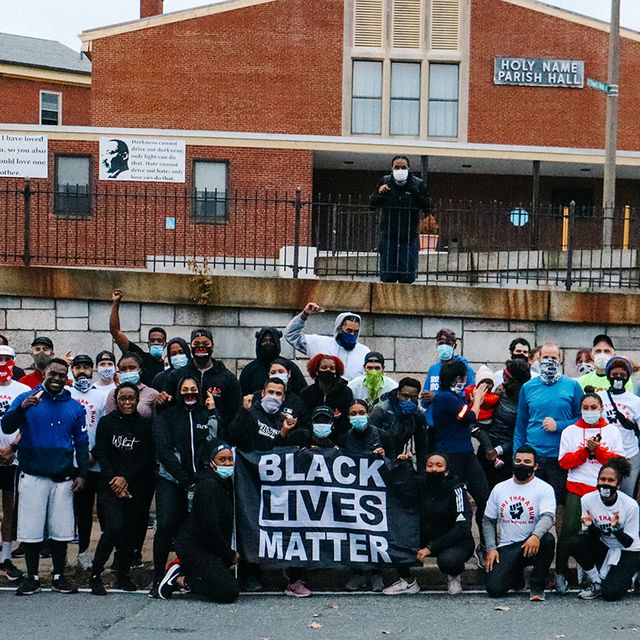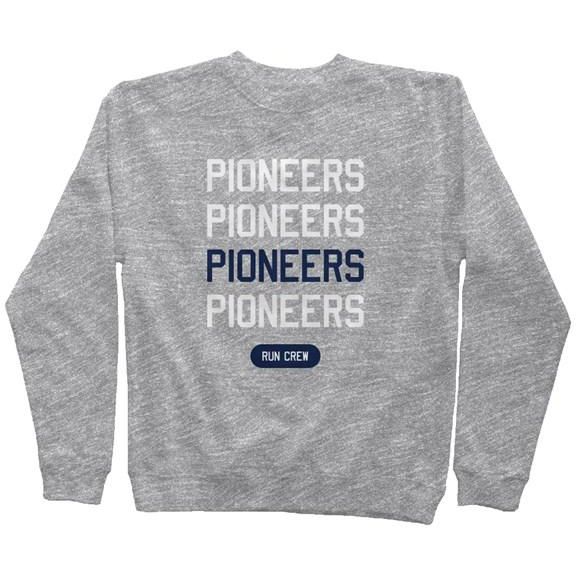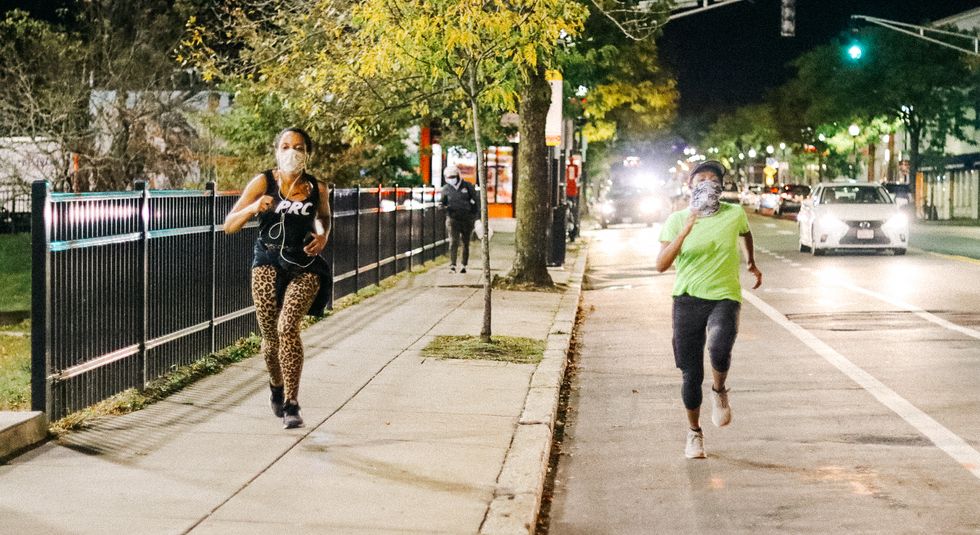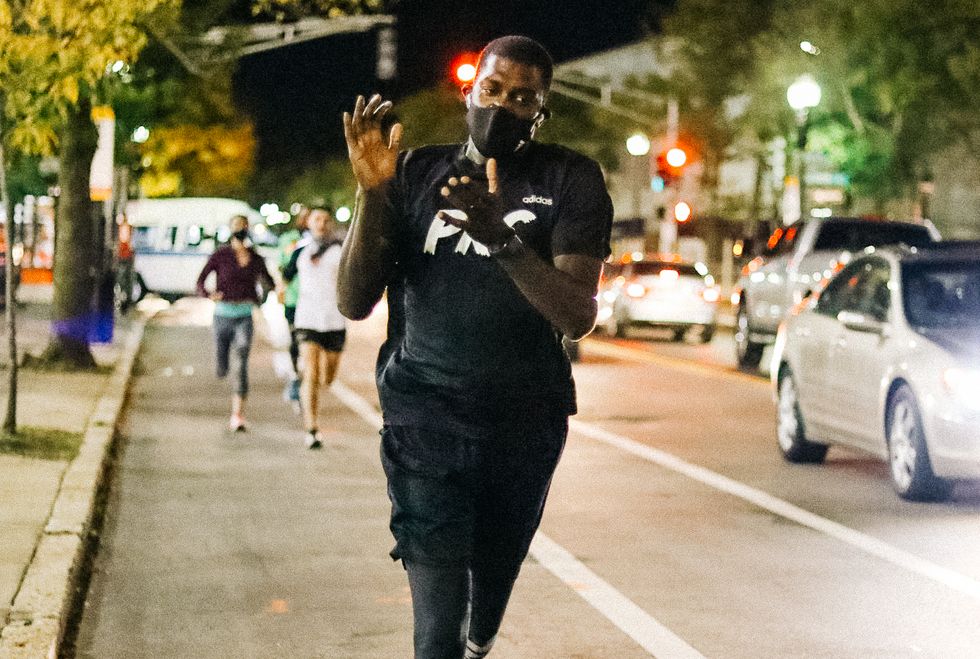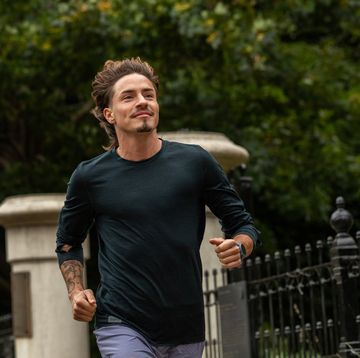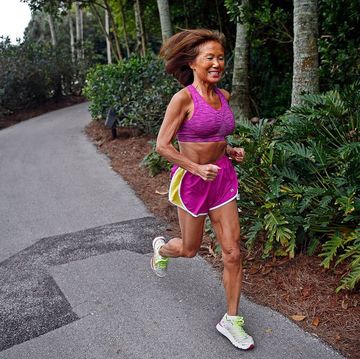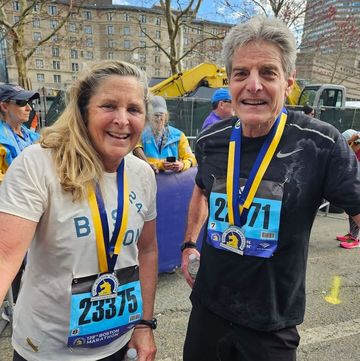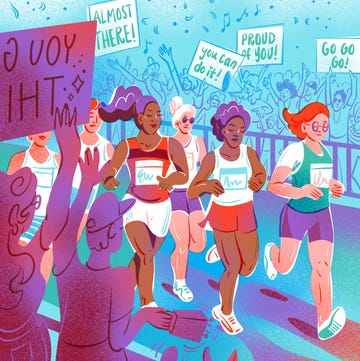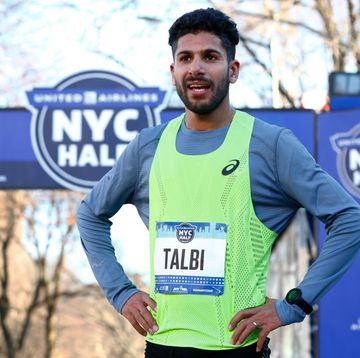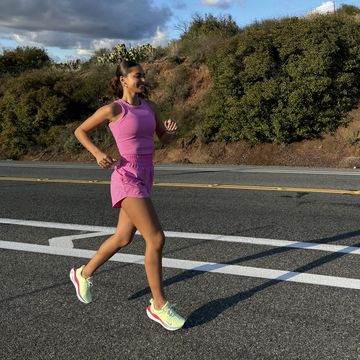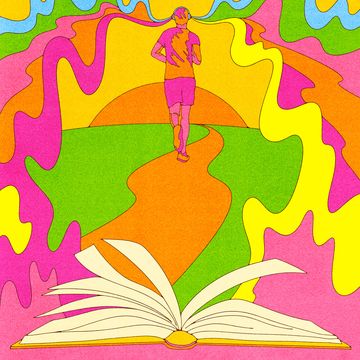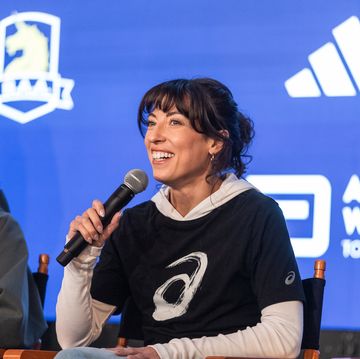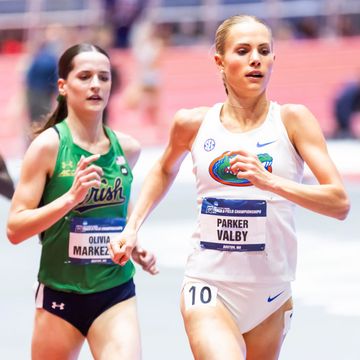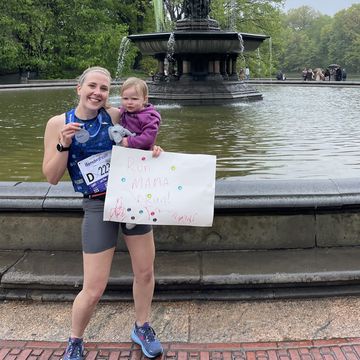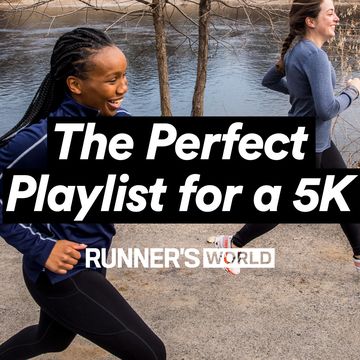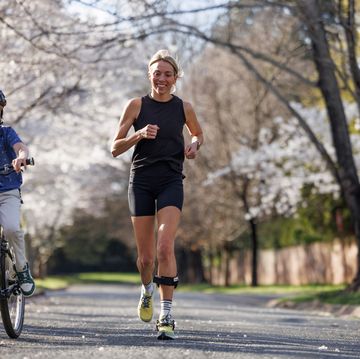On October 3, 29-year-old Bena Apreala was out for a mid-day run in West Roxbury, a predominantly white neighborhood in Boston, when he was stopped and questioned by agents from U.S. Immigrations and Customs Enforcement (ICE). When the confrontation turned hostile, Apreala began recording the interaction with his phone, and he later shared that footage with local news outlets.
The video sparked outrage among the local running community and elected officials, including Boston Mayor Marty Walsh. Apreala maintains that he was targeted and racially profiled; ICE later released a statement saying he had been stopped because he looked like a suspect they were searching for. The American Civil Liberties Union has since taken on his case, an instance of what many runners across the country have become familiar with as “running while Black.”
Runner’s World+ All Access will give you everything you need to become a healthier runner
Sidney Baptista, 33—the founder of PIONEERS Run Crew, who also works as a marketing and diversity, equity and inclusion consultant for running brands—heard about the incident from his friend, Dan Fitzgerald, who is the founder of the Heartbreak Hill Running Company and the Heartbreakers team in Boston, and who lives near West Roxbury. That area had also been regularly hosting Black Lives Matter protests every Monday at that point, so Baptista and Fitzgerald decided to plan a run to coincide with the protest scheduled for Oct. 12.
“We decided that we needed to show up as runners, so we brought our communities together to basically run in solidarity with [Apreala],” Baptista said. “[Apreala] surprised us and showed up, at first staying sort of disguised with his mask on. I think he felt the support, and it was emotional for him.”
Baptista, who started running long distances in 2014, was already long acquainted with the fact that running is an overwhelmingly white sport. He rarely saw other runners in his predominantly Black neighborhood of Dorchester in Boston, even though it’s Boston’s biggest and most populous neighborhood, and the most diverse as well. Baptista eventually became more involved in the running community, becoming a pacer with the Nike Run Club and a coach at a treadmill studio, and he would often travel by train, bus or bike to other neighborhoods to participate in organized group runs in Back Bay, Cambridge, and along the Charles river. He quickly noticed he was one of very few people of color in his running groups.
So in 2017, Baptista decided to create a running team—the PIONEERS Run Crew—to create an inclusive community for runners of color in Dorchester, and to diversify the running scene.
“I was growing tired of having to leave my house and go miles away just to run a couple of miles, and I also started to see that there were very few people of color in these spaces,” he said. “The reason why people don’t run in communities of color is because there’s such a stigma that if Black people are running, they’re either running from danger or running from the cops, or they’re running to attack someone. We just need to normalize Black people doing everyday things, including running.”
Baptista was also familiar with the common struggles that occur within communities of color and in Dorchester specifically (such as growing up poor in the inner city, facing violence, and having a lack of access to good and safe schools, fresh food and employment opportunities). He knew that the mental health benefits of running could be vital in helping people navigate these struggles.
According to Baptista, the club, which originally met every Wednesday at a local bar, is essentially the first free team of its kind (comprised largely of Black and brown runners) in the area. In the beginning, the club was comprised of about 90% people of color, and Baptista noted that it’s now more evenly split with whites and non-whites, with non-whites still being the majority. On average, the club has had about 150 active people joining the runs on a weekly basis prior to the COVID-19 pandemic; the runs are currently capped at 25 participants. During the Boston Marathon weekend, the group has had about 1,000 people join its planned runs.
In light of the ongoing COVID-19 pandemic, the group has shifted from weeknight runs to Saturday morning runs, and they have started meeting at area parks in order to remain as spaced out as possible. Runners are also asked to wear masks or face coverings, and they split up based on how far they want to run (usually anywhere from one to five miles).
“Dorchester has been growing from a gentrification standpoint, so we welcome people of all backgrounds who are moving into the neighborhood,” Baptista said. “It’s a good way to kind of get established into the community instead of moving in and not getting to know any people of color.”
Baptista noted that at first, many white runners he’d been training with questioned why starting a separate club like PIONEERS Run Crew was necessary. However, in light of recent incidents such as the tragic shooting of Ahmaud Arbery in February and now Apreala’s encounter with ICE officials, they realized and acknowledged that what he’s doing—activating and creating spaces for people of color—is actually quite important.
“A lot of people who have started to express interest in joining us have been white, which is cool and welcoming,” he said. “Some have reached out and said they want to support [what we’re doing] but don’t think it’s their place, and what I tell white people is that it’s just as important for them to come and run with this group because they may not have a Black friend or regularly interact with people of color in their daily lives. I know this because I live in Boston and know that they may not often see and interact with Black people [who aren’t working in the service industry or within the gig economy] in certain parts of the city.
“If this is the place where you’re going to establish relationships with people of color, it’s important because then when you go home and someone in your family makes a potentially racist comment, you have an experience with someone that you can point back to while explaining why saying such things is problematic,’” Baptista said. “I think running is a powerful connector and we can use it for greater social change. PIONEERS Run Crew is not only bringing people to see parts of Boston they’ve never been to before, but also helping to create and foster relationships among people even outside of the running group.”
This year, the club held its first in-person running protests in conjunction with the Heartbreak Hill Run Company. These two in-person events, called “Runs Against Racism,” served to bring people together to run in solidarity with Black lives, and, along with the club’s More Than a Run 5K, raised a total of $63,000 for local organizations—Boston University's Center for Antiracist Research, Violence In Boston, and Helen Y. Davis Leadership Academy—in the name of racial justice.
“We decided we wanted to raise money for three organizations that are kind of tackling and dismantling or supporting people that are affected by racial injustice,” Baptista said. “We felt like this year a lot of people learned a lot of history of Black Americans in this country and wanted to make sure that we’re supporting a school that’s actually teaching that history. And then we wanted to make sure we were supporting the people who were affected by violence because of systematic racism currently in their lives, and also raise money for an organization that's helping at a policy level.”
This year, Baptista also created the Fitness in Color podcast, which serves to amplify the voices of people of color who are leaders within the health and fitness sphere. He also has a performance streetwear brand PYNRS, which operates with the mission to champion community, culture and diversity through technical running apparel using streetwear design concepts and fabrics made of recycled materials. He was inspired to start the brand because of his experience working with large brands and seeing a lack of representation in leadership positions, even though they were drawing inspiration for designs from other communities.
“If there isn’t someone who is able to shed light or speak or create for communities of color when it comes to making key decisions, it’s going to be a room full of white people who are making decisions on what’s going on in the running community,” he said. “This is systematically leaving us out of the industry.”
As far as how others can contribute to making the running scene more diverse and equitable within their own locations, Baptista maintains that groups like PIONEERS Run Crew already exist in most major cities—it’s just a matter of finding them and making an effort to get involved. If there isn’t one, he encourages community members (both whites and people of color) to start their own with people of different backgrounds to support them and what they’re working on.
“One of the biggest reasons running can be such a powerful connector is because as much as it’s a solo sport, whatever your pace may be on a given day, you may be running with someone different who you’ve never really connected with,” he said. “The more we run side-by-side, the more we see people eye-to-eye—which is something I live by and plan to continue to grow with.”

Emilia Benton is a Houston-based freelance writer and editor. In addition to Runner's World, she has contributed health, fitness and wellness content to Women's Health, SELF, Prevention, Healthline, and the Houston Chronicle, among other publications. She is also an 11-time marathoner, a USATF Level 1-certified running coach, and an avid traveler.
